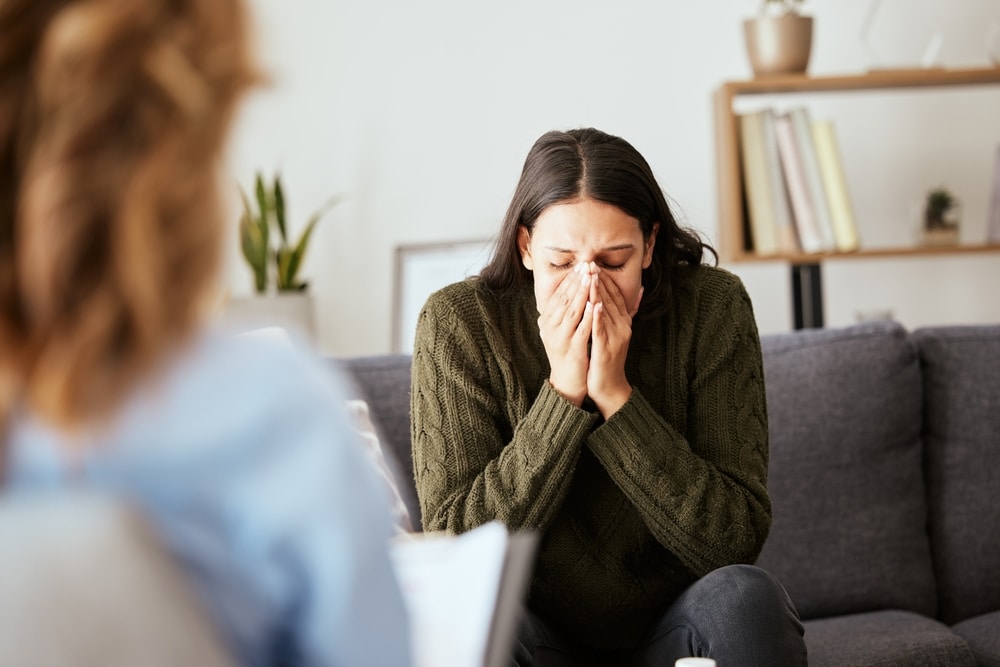Essential Steps To Overcome Trauma And Rebuild Your Life
Veterans returning from active service face the often overwhelming challenge of reintegrating into civilian life. This transition isn’t just about finding a new job or adjusting to a different routine—it’s about grappling with deep emotional and mental scars that many carry silently. When these wounds go untreated, they can profoundly affect not only a veteran’s well-being but also their relationships and overall quality of life. However, it’s crucial to remember that with the right support, resources, and a positive mindset, veterans can overcome these hurdles and build a fulfilling life after service. Understanding the nuances of post-service trauma is vital to supporting veterans on their journey to healing.
One of the most significant yet often unspoken issues prevalent among veterans is untreated trauma, which frequently manifests as Post-Traumatic Stress Disorder (PTSD). PTSD can develop after experiencing or witnessing distressing events, such as combat. The ongoing symptoms—flashbacks, nightmares, hypervigilance, anxiety, depression, and emotional numbness—can be incessant and debilitating. Unfortunately, the stigma surrounding mental health issues in military culture can prevent many veterans from seeking the help they need. A common attitude of “toughing it out” can lead to feelings of isolation and shame, making it even harder for veterans to acknowledge their pain and ask for assistance.
Even for those who don’t have PTSD, other forms of trauma—like moral injury from experiences that challenge one’s ethical beliefs or survivor’s guilt from surviving a tragic event where others didn’t—can deeply affect emotional and psychological health. These invisible wounds often linger untreated, hindering veterans from fully engaging in life outside of the military. This trauma can emerge in various troubling ways, including difficulty with relationships, job stability, and the temptation to resort to unhealthy coping methods such as substance abuse or self-isolation. Without adequate support and resources, many veterans may feel stuck in a cycle of pain, unable to find peace or purpose in their post-service lives.
One of the most vital steps in navigating post-service trauma is learning how to seek and accept help. While it might feel daunting initially, reaching out for support is a fundamental first step in the healing journey. Thankfully, there are a wealth of resources available to veterans that can make a profound difference.
The U.S. Department of Veterans Affairs (VA) offers an extensive range of programs aimed at supporting veterans in their recovery from trauma. These include counseling services, mental health programs, and peer support groups designed specifically for veterans. For example, VA’s Vet Centers provide confidential readjustment counseling to veterans and their families, helping them to face the unique challenges of transitioning back to civilian life. Through these services, veterans are connected with licensed professionals who are attuned to the specific struggles that come with their experiences in the military.
Beyond formal programs, camaraderie and support from fellow veterans serve as powerful tools for healing. Peer support groups create safe spaces for veterans to share their stories, validate each other’s feelings, and provide encouragement. Many find strength in the knowledge that they’re not alone in their struggles. Organizations like the Wounded Warrior Project and Team Red, White & Blue foster community-building opportunities that connect veterans with others who share similar experiences, reinforcing that they are indeed part of a larger, supportive family.
For veterans embarking on this new chapter of life, securing stable housing is paramount. A safe and secure living environment serves as a foundation that allows veterans to focus on their mental and physical well-being, pursue employment opportunities, and rebuild relationships. Unfortunately, many face difficulties finding affordable housing, especially those who grapple with untreated trauma. Accessing housing assistance programs provided by the VA, local organizations, and nonprofits can help veterans secure a stable home environment.
In addition to pursuing stable housing, self-storage solutions can be an unexpected yet valuable resource during this transition. Many veterans come back with possessions accumulated throughout their service or may need time to downsize while settling into new homes. Self-storage units offer a temporary solution for safe storage, allowing veterans to declutter their living spaces, create organization, and alleviate the stress of managing an overwhelming number of personal items. By providing this added layer of convenience, self-storage can minimize some of the hurdles on their path to healing and stability.
In moving forward from trauma, it’s crucial for veterans to prioritize their physical and mental health. Building a healthy, vibrant life involves developing sustainable habits that bolster overall well-being. Regular exercise, nutritious eating, good sleep hygiene, and mindfulness practices are all pivotal in navigating post-service life and mitigating the effects of trauma.
Physical activity is one of the most effective weapons against stress and can significantly improve mental health. It sparks the release of endorphins, which act as natural mood lifters, helping to ease symptoms of anxiety and depression. Whether it’s hitting the gym, running, cycling, or even practicing yoga, engaging in physical activity can promote emotional balance and reduce stress. Many organizations offer fitness programs tailored for veterans, fostering camaraderie through shared experiences while encouraging physical health.
Nutrition is another critical component. The foods we consume impact our mental and emotional states significantly. Maintaining a well-balanced diet rich in whole foods such as fruits, vegetables, lean proteins, and whole grains can enhance mood and energy levels. For veterans facing challenges like depression or anxiety, working with a nutritionist to develop a meal plan aimed at promoting brain health can be particularly beneficial. Steering clear of excessive alcohol and caffeine can further help maintain emotional stability and promote better sleep.
Speaking of sleep, disturbances in sleep patterns are common challenges among veterans dealing with untreated trauma. The symptoms of PTSD and anxiety can hinder one’s ability to fall asleep or stay asleep, resulting in fatigue and irritability. Developing a consistent sleep routine, limiting screen time before bed, and establishing a calming pre-sleep ritual can significantly enhance sleep quality. Many veterans find meditation, deep breathing exercises, or gentle journaling before bed as helpful tools to unwind and secure a more restful night’s sleep.
Practices like mindfulness and therapy can prove invaluable in the journey toward recovery. Engaging in mindfulness activities such as meditation, deep breathing, or keeping a journal can help veterans stay grounded in the present moment, effectively managing intrusive memories or overwhelming emotions. Mindfulness can assist in emotional regulation, enabling veterans to tackle stress in healthier ways. Additionally, therapy—especially cognitive-behavioral therapy (CBT) and trauma-focused methods—empowers veterans with the knowledge and tools necessary to process their experiences, reevaluate negative thought patterns, and build adaptive coping strategies.
Healing from post-service trauma is a deeply personal and non-linear journey; it takes time, and there will be challenges along the way. However, with the right support, veterans can reclaim their lives and transform them into futures filled with hope, joy, and resilience. Remember, healing is not about erasing the past; it’s about learning to exist fully in spite of it. By confronting their trauma head-on, seeking the help they need, and developing healthy habits, veterans not only can foster personal growth but also thrive in civilian life.
Veterans have already shown remarkable strength and bravery through their service. Just by taking that first step towards addressing untreated trauma and prioritizing their well-being, they can find peace and purpose, ultimately crafting a fulfilling life that transcends the battlefield. They are not just survivors but warriors in another battle—one toward recovery and hope.
















